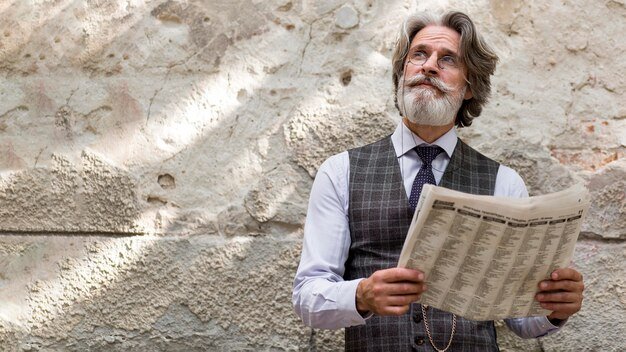The 1900s were a transformative era, defined by rapid industrialization, scientific discovery, and cultural shifts. Amid this vibrant backdrop, the name “Markus Müller” emerges as a fascinating figure in historical narratives. Although not as widely recognized as some contemporaries, Müller’s contributions spanned diverse fields, leaving an indelible mark on the early 20th century.
The Historical Context of the 1900s
Before delving into Markus Müller’s life and achievements, it’s essential to understand the context of the 1900s. The world was on the brink of modernity, marked by the rise of new technologies, the spread of industrial capitalism, and significant geopolitical shifts. The period witnessed breakthroughs in science, such as Einstein’s theory of relativity, and cultural milestones like the advent of cinema and modern art movements.
Markus Müller: A Polymath of the Era
Markus Müller was a man of many talents, operating at the crossroads of science, engineering, and social reform. While much about his life remains subject to interpretation due to limited historical records, his known endeavors highlight a multifaceted individual driven by curiosity and a commitment to societal improvement.
1. Contributions to Engineering and Technology
One of Markus Müller’s most significant areas of impact was engineering. At a time when technological innovation was reshaping industries, Müller made notable advancements in mechanical design and automation. He was particularly involved in refining early assembly-line machinery, a development crucial for mass production.
- Innovations in Manufacturing: Müller’s designs streamlined production processes, making them faster and more efficient. His inventions reportedly influenced factories across Europe, particularly in the burgeoning automobile and textile industries.
- Patents and Designs: Historical records suggest that Müller held several patents for mechanical devices, including a prototype for an early automated loom. This invention played a pivotal role in modernizing the textile industry, reducing labor intensity while increasing output.
2. Pioneer in Renewable Energy Concepts
Long before environmentalism became a global concern, Müller advocated for sustainable energy solutions. He conducted experiments with wind and water power, laying the groundwork for renewable energy concepts. His forward-thinking ideas were ahead of their time and remain relevant in today’s pursuit of green energy.
- Wind Turbine Designs: Müller’s early sketches for wind turbines demonstrated a deep understanding of aerodynamics and mechanical engineering. Although his prototypes were rudimentary compared to modern designs, they reflected an awareness of the potential for harnessing natural forces.
- Hydroelectric Projects: Müller collaborated on small-scale hydroelectric projects in rural areas, aiming to bring electricity to underserved communities. These efforts reflected his belief in the democratizing power of technology.
Advocacy for Social Reform
Müller was also a passionate advocate for workers’ rights and social reform, inspired by the labor struggles of the Industrial Revolution. He believed that technological progress should benefit all members of society, not just the elite.
- Improved Working Conditions: As a consultant for factories, Müller championed safer working environments, advocating for ergonomic tools and better ventilation systems.
- Educational Programs: Müller promoted technical education for working-class individuals, believing that knowledge and skill development were keys to economic empowerment. He organized workshops and wrote instructional pamphlets to help workers understand the machinery they operated.
4. Involvement in Scientific Exploration
Müller’s interests extended to scientific exploration, particularly in physics and chemistry. He was reportedly influenced by the works of Marie Curie and Albert Einstein, delving into experimental physics during his free time.
- Material Science Research: Müller experimented with new alloys and materials, seeking to improve the durability and efficiency of industrial tools.
- Collaboration with Universities: He maintained ties with academic institutions, sharing his findings and fostering collaboration between industrial practitioners and theoretical researchers.
5. Legacy and Influence
Markus Müller’s contributions may not have earned him global fame, but they left a lasting legacy in the fields he touched. His work in engineering and renewable energy inspired subsequent innovators, while his advocacy for social reform reflected the progressive spirit of the 20th century.
- Recognition: Though overshadowed by more prominent figures, Müller received accolades within certain industrial and academic circles. His efforts were particularly celebrated in Germany, where he spent much of his life.
- Enduring Impact: Many of Müller’s ideas, particularly those related to renewable energy and labor rights, have gained renewed attention in the 21st century as societies grapple with sustainability and equity issues.
Conclusion
Markus Müller epitomized the innovative and humanitarian spirit of the 1900s. As an engineer, scientist, and social reformer, he dedicated his life to advancing technology while ensuring its benefits reached as many people as possible. His contributions, though sometimes overlooked, remain a testament to the power of ingenuity and empathy in shaping a better future.
Today, as the world faces challenges like climate change and economic inequality, Müller’s legacy serves as a reminder of the importance of balancing progress with responsibility. By revisiting figures like Markus Müller, we gain valuable insights into the interconnectedness of innovation and social well-being, lessons that continue to resonate across generations.










